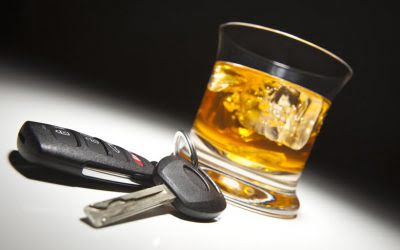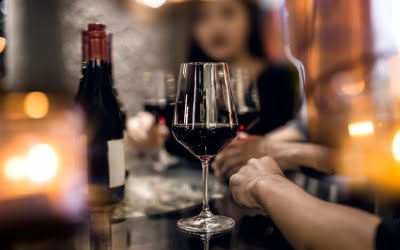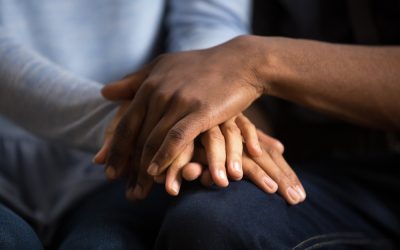Stress is typically a response to an external trigger, such as a tight deadline or a challenging situation, and tends to be more immediate and situation-specific. Every morning, I would check that damn stove five or six times before leaving. On bad days, I would leave my apartment and go back up to check once more.
What Is a Functioning Alcoholic?

Regarding psychological changes, the effects of alcohol on anxiety may change how https://pfmetalwelding.com/alcohol-use-disorder-get-the-treatment-you-need-2/ you feel socially. While drinking, you may engage in behaviors that lead to accidents, injuries, or embarrassment. When this happens, you can develop anxiety by ruminating over what people think about you after seeing you in that position. Even when you become sober, you may still have lingering anxiety when socializing. The brain has chemicals that naturally release when we need to calm down, reduce pain, and feel good. Alcohol interferes with the brain’s ability to release these chemicals.
How does caffeine affect my sleep?
Not knowing what occurred during the blackout period can be anxiety-inducing, even leading to alcohol paranoia. Please seek help if you’re finding you’re experiencing this or if alcohol blackouts are becoming more frequent. People can speak with a doctor if they experience AUD and anxiety. Some individuals may benefit from treatments such as medication or counseling. Hangover duration and severity may depend on the amount of alcohol a person drinks. A 2018 narrative review suggests that 21.9% to 24.1% of people with an anxiety disorder or mood disorder use alcohol or drugs to relieve their symptoms.
Benefits of Quitting Alcohol: Improved Sleep Quality
- Anxiety is one of them, with between 20-40% of people treated for anxiety disorders also meeting the diagnosis for alcohol use disorder (AUD).
- I joked at the time that I had OCD moments, but I now realize that I was in the early clutches of a full-blown anxiety disorder.
- If you’re sensitive to gluten, it can cause anxiety or depression.
- Let’s say you’ve had a big night out and you can’t quite recall a conversation you had or something you did.
Hangxiety can last anywhere from a few hours to a full day, depending on how much you drank, your health, and how your body reacts to alcohol. For most people, it goes away within 24 hours after the drinking stops. Additionally, panic attacks can be triggered because of the effect alcohol has on GABA, another brain chemical that normally has a relaxing effect. Talk to your doctor about alcohol consumption before taking any of these medications, as side effects can be harmful or fatal.
Living with an Alcoholic: Practical Advice to Help Your Loved One and Yourself
- People who struggle with trauma and other mental health issues are more likely to abuse alcohol.
- Fill out the form below or give us a call to start healing today.
- As it turns out, I’m not alone in having anxiety the day after drinking (a.k.a. hangxiety).
Drinking a small glass of wine every night with dinner will not likely cause anxiety. However, drinking two or more units of alcohol in the evenings disrupts your brain chemistry, leading to increased anxiety the following day. You may experience alcohol-induced anxiety, which can last for hours or even an entire day after drinking.
When you use alcohol to cope, you limit yourself from learning healthy and effective ways to manage anxious feelings. However, to live your healthiest and fullest life, Dr. Besante recommends finding alternate coping mechanisms. When getting sober, you might have to confront the reasons you started drinking. Anxiety in early recovery is often baseline anxiety that existed before developing unhealthy drinking habits and getting sober.
When the chemicals in an individual’s brain are altered, it can completely throw off how a person’s body reacts in everyday situations. Alcohol overall induces panic in a person because of all the effects on gamma-Aminobutyric acid (GABA), which is a chemical that has a relaxing effect normally. The longer an individual depends on alcohol to assist in treating their anxiety, the more at risk she becomes of developing a full-blown alcohol use disorder. Additionally, the longer she engages in this vicious cycle, the more likely anxiety symptoms will lurk. This is especially likely if the overall underlying triggers weren’t appropriately treated or addressed. When an individual engages in chronic alcohol use, their ability to respond to stress in an effective or healthy way can lead to anxiety.
Keep reading to learn about the harmful cycle and link between alcohol and anxiety. Consuming more than 400 mg a day may result in adverse effects. However, if you are drug addiction sensitive to the effects of caffeine or have a condition that might be worsened by caffeine, such as anxiety, you might experience problems at even lower doses. Some research suggests that caffeine can increase the antidepressant effects of some medications, including Wellbutrin and other common antidepressants such as Prozac and Lexapro.

This form of talk therapy focuses on how your thoughts, feelings, and behaviors are connected. People with anxiety have distorted, irrational thought patterns that contribute to their anxiousness. CBT allows you to examine these negative thought patterns and create healthier ones that can ultimately lessen your anxiety symptoms. People with comorbid or pre-existing mental health conditions like social anxiety disorder or generalized anxiety disorder might find that alcohol worsens their symptoms. While in the moment, alcohol might seem to mask issues, but often, the rebound effect will intensify anxiety in the end. When you’re actively drinking, alcohol can temporarily reduce anxiety symptoms by depressing the central nervous system.
If you’re OK with it, or drink decaf, coffee can actually help make you feel less depressed. So, why exactly does drinking alcohol lessen anxiety at first but ultimately worsen it? It why does drinking cause anxiety comes down to brain chemistry and neurotransmitters, which are chemical messengers in your brain.

A person may feel like they are unable to sleep or relax, and they might also experience feelings of shame and guilt. As the effects of alcohol wears off, these brain chemicals fluctuate as well. The dehydration caused by alcohol use can have a negative impact on emotions and contribute to symptoms of hangxiety. These fears, feeling physically ill, and the sudden crash of “feel-good” chemicals create the perfect environment for anxiety to take over. Also, drinking too much alcohol can lead to a loss of inhibition and even memory loss, which can be very disorienting as the brain starts to recover.